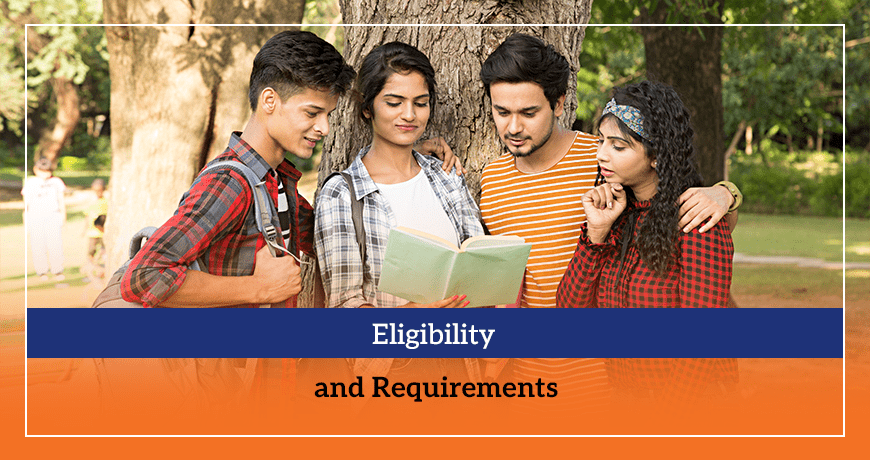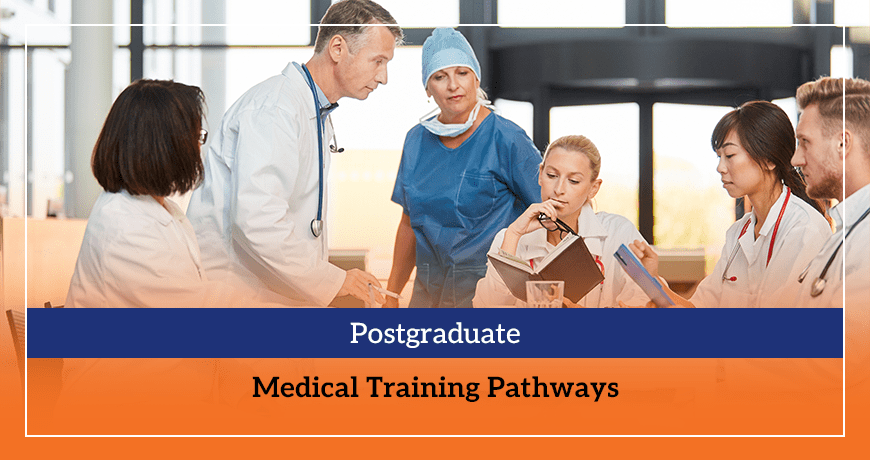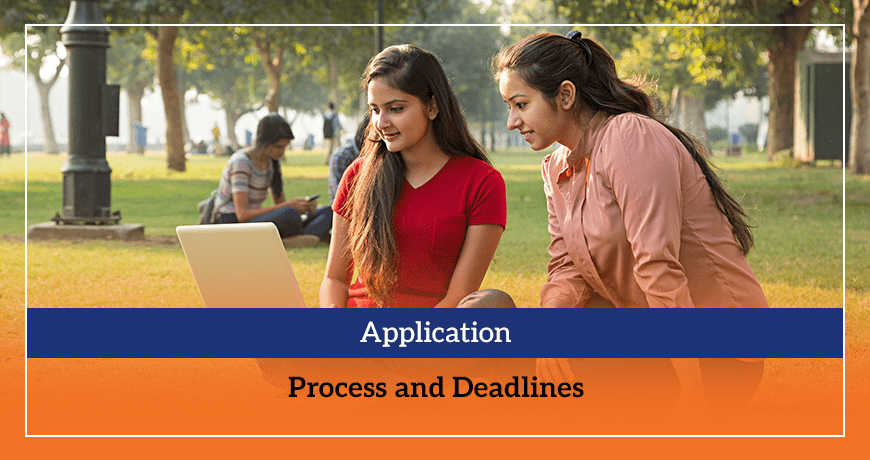Have you wondered why so many students go for PG in UK after MBBS in India? A postgraduate degree from the UK will advance your medical career and help you gain the knowledge to become a top-notch doctor.
The United Kingdom is well-known for its healthcare system and is home to one of the best medical education in the world. This write-up will provide guidance and information on the process and requirements for Indian MBBS graduates seeking PG opportunities in the UK. So, let’s jump right in.
Overview of the UK Medical Education System
Structure and Levels of Medical Education in the UK
The medical education system in the United Kingdom has two levels. They are:
- Undergraduate: Undergraduate medical education generally takes six years at UK universities or colleges. The first two years focus on basic medical sciences, including anatomy, physiology, biochemistry, and pharmacology. The remaining years emphasise clinical training, with students rotating through different medical specialities.
- Postgraduate: After passing the MBBS, students can opt for a postgraduate degree. Postgraduate education has two phases: foundation training and speciality training. The duration of postgraduate studies (PG) after MBBS depends on the program you choose. Foundation training is a two-year program compulsory for all newly qualified doctors in the UK. Speciality training is a long program where doctors specialise in a particular medical field.
Recognition and Acceptance of Indian MBBS Degrees in the UK
The United Kingdom's regulatory body for doctors, the General Medical Council (GMC), recognises and accepts MBBS degrees from India. It means Indian-trained doctors can practice medicine in the UK. However, there are some requirements to fulfil, such as:
- Students must pass the UK Medical Licensing Examination.
- Complete a Foundation Program in the UK.
- Obtain a Certificate of Good Standing from the GMC.
Validity of Indian MBBS in UK & UK PG in India
For UK Practice
The General Medical Council (GMC) recognises Indian MBBS degrees through a structured 3-step pathway:
- EPIC Verification: Register with ECFMG's portal for credential authentication (£350 processing fee)
- Language Proficiency: Achieve minimum IELTS 7.5 (7.0+ in all sections) or OET Grade B
- Clinical Assessment: Pass PLAB 1 (theory) and PLAB 2 (OSCE practical) examinations
Important Update (2025): GMC now accepts 24-month supervised clinical work as an internship equivalent for graduates from MCI-approved institutions.
For India Practice
UK postgraduate qualifications require NMC registration through:
- Verification against the NMC's approved institutions list
- Completion of a 12-month rotating internship (India/UK)
- NEXT/FMGE clearance within 24 months of return
Key Insight: MRCP/MRCS qualifications receive faster NMC approval (average 45 days) compared to clinical diplomas (90+ days).
Differences in the Training and Certification Systems between India and the UK
The main difference between Indian and UK MBBS degrees is the longer it takes to become a doctor. Generally, an MBBS degree in India takes 5 years. However, in the UK, it takes 6 years to complete an undergraduate medical degree.
In addition, the UK medical education system heavily emphasises clinical training, unlike India's. In India, the medical school curriculum is more focused on basic medical sciences.
Indian medical students are assessed through written, practical, and viva exams. On the other hand, medical students in the UK are assessed through a combination of written exams, practical exams, viva voce examinations, and clinical rotations.

Eligibility and Requirements
English Language Proficiency
Medical PG in UK after MBBS in India requires you to demonstrate your English language proficiency to study postgraduate and practice in the UK. You can take the IELTS or OET exams and earn a good score to show good English language proficiency.
The minimum IELTS score required to get admission to UK universities is 7.0, and the minimum OET score is 7.5.
Professional Qualifications
An Indian student must have a valid MBBS degree and registration to study postgraduate in the UK.
Students must also complete an internship and have some work experience. Such as:
- At least 1-year internship- in India or another GMC-recognised country.
- Minimum 2 to 3 years of work experience in a clinical setting.
- Students may be required to take additional licensing or examinations, such as the Professional and Linguistic Assessments Board exam, Membership of the Royal College of Physicians, and Membership of the Royal College of Surgeons.
Entrance Exams and Applications
You can choose from several entrance exams to apply for a postgraduate medical program in the UK. The most common ones are PLAB, MRCP, and MRCS.
Each has a different registration process, fees, and exam schedules. The exact information can be found on the respective exam body's website.
The following table shows the upcoming closing dates and exam dates for the PLAB, MRCP, and MRCS exams:
| Exam |
Application Period |
Exam Date |
Fees (GBP) |
| PLAB 1 |
To Be Announced |
To Be Announced |
£255 |
| MRCP Part 1 |
4–11 Nov 2024 |
22 Jan 2025 |
£489 (UK) / £655 (Int.) |
| |
3–10 Mar 2025 |
14 May 2025 |
£489 (UK) / £655 (Int.) |
| |
7–14 Jul 2025 |
17 Sep 2025 |
£489 (UK) / £655 (Int.) |
| MRCS Part A |
Until 24 Oct 2024 |
15 Jan 2025 |
£625 |
| |
Until 20 Feb 2025 |
29 Apr 2025 |
£625 |
| |
Until 26 Jun 2025 |
16 Sep 2025 |
£625 |
| MRCS Part B |
Until 21 Nov 2024 |
1–16 Feb 2025 |
£1,099 |
| |
Until 27 Feb 2025 |
10–25 May 2025 |
£1,132 |
PG Without PLAB: 3 Strategic Pathways
1. Academic Clinical Fellowships (ACF)
2. Royal College Direct Entry
3. Clinical Attachment Conversion
- Secure 6-month observer-ship at NHS trust (£1,200/month fee)
- Convert to Tier 5 Temporary Worker visa
- Transition to Tier 2 sponsored position
- Success Rate: 68% at London teaching hospitals

Postgraduate Medical Training Pathways
Foundation Program
The Foundation Program in the UK is a two-year PG program mandatory for all newly qualified doctors. It is divided into two phases and various rotations, each lasting about 4 to 12 weeks.
- Foundation Year 1: where doctors rotate through various specialities such as general medicine, surgery, and paediatrics.
- Foundation Year 2: where doctors have more choice over their rotation and can put more emphasis on a particular area of medicine.
The entry requirements for a Foundation Program can vary based on several factors. However, here are some common requirements for Indian students:
- Applicants must hold a valid MBBS degree and be registered with the Indian authority and the General Medical Council (GMC).
- Must meet the English language proficiency requirements.
Specialty Training
Specialised Training is a longer program that allows doctors to specialise in a particular field of medicine, such as medicine, surgery, paediatrics, or internal medicine.
There are more than 30 different specialised training courses available in the UK. The Royal College or other professional bodies conduct them. Each training program has its own set of requirements, including the number of years required for training and the exams that need to be passed.
The GMC accredits all speciality training programs in the UK. Depending on the specialisation, they generally take 4 to 8 years to complete. Doctors are assessed regularly to ensure they meet the required standards.
Navigating the UK's Royal Colleges System
Institution Comparison
| College |
Membership Fee |
Exam Pass Rate |
Key Specialties |
| RCSEng (England) |
£625/year |
68% (2023) |
Cardiothoracic, Neurosurgery |
| RCPSG (Glasgow) |
£415/year |
71% (2023) |
Orthopaedics, ENT (NMC-recognised) |
| RCP London |
£487/year |
72% (2023) |
Endocrinology, Neurology |
Strategic Pathways
Funding and Scholarships
Cost of Studying and Living in the UK
Comprehensive Expense Analysis (2025)
| Expense Category |
Annual Cost (£) |
INR Equivalent |
| University Tuition |
38,000-45,000 |
₹40-48 lakhs |
| Accommodation |
8,000-12,000 |
₹8.5-12.7 lakhs |
| Food & Essentials |
2,400 |
₹2.5 lakhs |
| Health Insurance (IHS) |
624 |
₹66,000 |
| PLAB/MRCP Exams |
1,500-3,000 |
₹1.6-3.2 lakhs |
| Total Annual |
50,524-63,024 |
₹53-67 lakhs |
Financial Planning Tips:
- Apply before December for early-bird discounts (15% average fee reduction at Russell Group universities)
- NHS offers 30% tuition reimbursement for speciality trainees in shortage occupations (Psychiatry, Emergency Medicine)
- Part-time medical transcription work can offset 40% of living costs
Top Funding Opportunities for Indian Medical Graduates
-
Chevening Medical Leadership Award
-
100% tuition coverage + £1,362/month stipend
-
Requirements: Minimum 3 years clinical experience + leadership evidence
-
Commonwealth Split-site Scholarship
-
Gates Cambridge Scholarship
Education Loan Comparison
| Provider |
Interest Rate |
Collateral |
Disbursement |
| HDFC Credila |
10.5% |
Property |
45-60 days |
| Prodigy Finance |
7.9% |
Future earnings |
21 days |
| Bank of Baroda |
8.3% |
Guarantor |
60-75 days |
Also read:
Financial Planning and Budgeting for International Students
Studying in the UK is a costly affair. Therefore, international students must plan their finances carefully before and after arriving in the UK. Here are some strategies you can follow in planning and budgeting:
- You should start planning your funding options early and apply for scholarships and grants as early as possible.
- Try to be realistic about your expenses and include all relevant items, such as tuition fees, accommodation, food, transportation, etc.
- Make a realistic budget plan that you can implement.

Application Process and Deadlines
Researching and Shortlisting Programs
The first step in the application process is researching and shortlisting postgraduate programs to identify suitable ones. There are several ways to do this: research online, attend university admission fairs, and speak with current students in the UK.
While searching for the right PG course in the UK, you must consider a few factors, including the program's reputation, the curriculum, and the faculty members who will teach the program. These factors will help ensure that your chosen program is the right fit for you.
Application Documents and Personal Statement
The application documents you need will depend on your university and the program you choose. Different universities and colleges in the UK may require different documents. However, the most common documents include:
- Transcripts of your MBBS degree
- All your academic documents
- Letter of recommendation
- Personal statement
A personal statement is essential for your application process for a PG program in the UK. It is your only chance to tell the admission officers your story: what made you interested in this course and why you are a good fit. It must be well-written and highlight your strengths and accomplishments.
Application Deadlines and Admission Timelines
To apply for a postgraduate program in the UK from India, it is essential to be aware of the admission timelines and application deadlines. While the deadline for postgraduate admission varies by program, most deadlines typically fall in the winter and spring months.
You should apply to your chosen postgraduate program as early as possible. But you must start preparing even before. It will give you enough time to gather all the necessary documents and write a powerful personal statement.
Here are some pro tips on the application process:
- Start the process early since it will give you more time to research programs, gather documents, and apply smoothly.
- Make sure to track the application deadline and requirements for each program.
- Review all the documents before submitting them to ensure everything is updated and correct.
Visa and Immigration Process
Types of Student Visas Available for International Students
The United Kingdom has several types of visas for immigrants. Among them, two main types of student visas are available for international students. But as an international student who has completed MBBS from India and wants to apply for a PG medicine in UK, you have only one visa option:
- Tier 4 Student Visa: This visa applies to international students enrolled in a full-time course at a university or college in the UK. It allows international students to live, study, and work part-time in the UK.
Visa Application Process and Requirements
The UK visa application process for international students is as follows:
- First, you must be admitted to your chosen program and ask for a Confirmation of Acceptance for Studies from the university or college.
- Once you have the CAS, you can visit the nearest UK embassy to apply for a student visa.
- You must complete the visa application form and submit all the required supporting documents.
- Then, you'll have to appear before a visa officer for a visa interview on the given date. You may have to answer questions about your study plans and future goals.
- Finally, you can expect your visa application to be successful, and you will get a student visa.
You will need the following documents while applying for a student visa in the UK:
- A valid passport
- Proof of English language proficiency
- CAS
- Proof of financial support
- Medical test report
Health and Medical Insurance Coverage
As an international student in the UK, you will need medical insurance covering your medical treatment costs. You can purchase your health insurance from a private company or the National Health Service.

Post-PG Career Outlook: UK vs India
UK Employment Landscape
| Position |
Average Salary |
Visa Sponsorship Rate |
| FY2 Doctor |
£34,012 |
92% NHS Trusts |
| Speciality Registrar |
£51,017 |
Tier 2 (3-year minimum) |
| Consultant |
£88,364 |
ILR eligibility after 5 years |
Top Recruitment Channels:
- Messly (specialised IMG recruitment)
- BMJ Careers portal
- NHS Jobs database
India Opportunities
UK-trained specialists command significant premiums:
Negotiation Advantage: UK-qualified doctors typically secure 8-12 weeks of annual leave, compared to the standard 4 weeks in India.
UK vs Global PG Destinations (2025)
| Parameter |
UK |
Germany |
Canada |
Australia |
| Program Duration |
4-8 yrs |
5-6 yrs |
5-7 yrs |
4-6 yrs |
| Annual Tuition |
£38-45K |
€3-5K |
CA$45-60K |
AU$45-65K |
| PR Timeline |
5 yrs |
24 mos |
36 mos |
48 mos |
| Avg Post-PG Salary |
£88K |
€78K |
CA$220K |
AU$180K |
| Language Requirement |
IELTS 7.5 |
C1 German |
IELTS 7.0 |
IELTS 7.0 |
Conclusion
The medical education system in the UK is highly respected in India. That’s why plenty of students go for PG in UK after MBBS in India. As a result, they can enrich their knowledge by studying at world-class universities or colleges and learning from experienced professors. So, if you are looking for a challenging yet rewarding experience, a postgraduate degree (PG) in the UK is a great option.